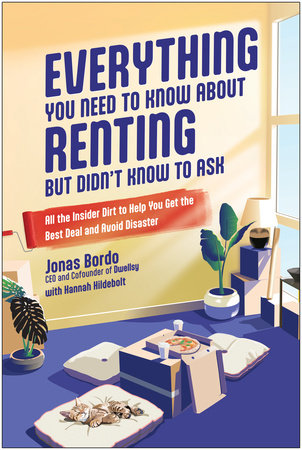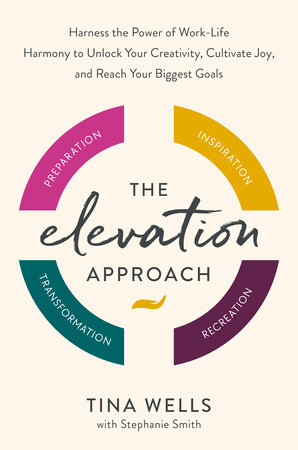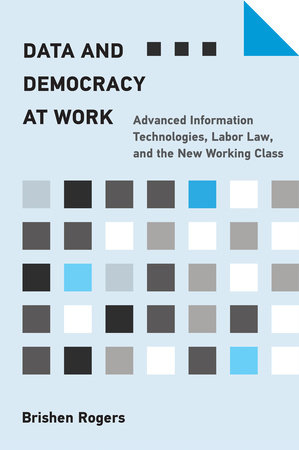Everything You Need to Know About Renting But Didn’t Know to Ask by Jonas Bordo and Hannah Hildebolt is about navigating the often complex and confusing world of renting properties. It serves as a comprehensive guide, providing valuable insights and practical advice for both first-time renters and seasoned tenants.
People often think that renting is straightforward – find a place, sign a lease, and move in. However, this book reveals that there’s much more to consider, such as understanding your rights as a tenant, negotiating with landlords, and handling rental agreements. That means renters can be better prepared and informed, potentially saving themselves from common pitfalls and financial losses.
In this summary, you’ll learn about the key aspects of renting, from searching for the right property to moving out. The book covers essential topics like interpreting lease agreements, managing rental finances, and dealing with maintenance issues. It also provides strategies for effective communication with landlords and understanding tenant rights and responsibilities.
I recommend Everything You Need to Know About Renting But Didn’t Know to Ask for anyone currently renting or planning to rent in the future. It’s a must-read for those who want to navigate the rental landscape with confidence and ease, ensuring a positive and hassle-free renting experience.
Five Key Ideas in Everything You Need to Know About Renting But Didn’t Know to Ask
The book discusses these five key ideas:
1. Understanding Your Rights as a Tenant: It emphasizes the importance of knowing your legal rights and responsibilities. This includes understanding lease agreements, knowing what a landlord can and cannot do, and being aware of your rights regarding deposits and evictions.
2. Finding the Right Property: Guidance on how to search for the ideal rental property. It covers factors like location, budget, amenities, and the importance of researching the area and the landlord.
3. Effective Lease Negotiation: Strategies for negotiating lease terms. This includes tips on how to communicate with landlords, what to look for in a lease agreement, and how to advocate for fair terms.
4. Handling Maintenance and Repairs: Advice on dealing with maintenance issues. The book outlines how to report problems, understand who is responsible for repairs, and what to do if your landlord is unresponsive.
5. Financial Management for Renters: Insights into managing finances as a renter. This covers budgeting for rent and utilities, understanding rental insurance, and saving money while renting.
Idea #1: Understanding Your Rights as a Tenant
Understanding your rights as a tenant is crucial in navigating the rental market confidently and avoiding potential conflicts. This knowledge empowers renters to make informed decisions, negotiate better lease terms, and protect themselves from unfair practices. It’s about creating a balance of power between the tenant and the landlord, ensuring that the tenant’s interests are safeguarded.
In “Everything You Need to Know About Renting But Didn’t Know to Ask,” Bordo and Hildebolt provide detailed examples of common legal pitfalls that tenants might face. For instance, they discuss scenarios like unjustified eviction attempts or illegal retention of security deposits. By presenting these examples, the authors illustrate the significance of being legally savvy as a tenant.
“Knowing your rights is not just about legal protection; it’s about peace of mind.” Jonas Bordo and Hannah Hildebolt, Everything You Need to Know About Renting But Didn’t Know to Ask
Key aspects of tenant rights include:
- Lease Agreements
- Security Deposits
- Maintenance Responsibilities
- Eviction Processes
Lease Agreements
Understanding lease agreements is foundational to tenant rights. The book explains the importance of reading and understanding every clause in the lease agreement. This includes terms about rent increases, subletting, and lease termination.
For example, the authors describe a situation where a tenant fails to notice a clause about annual rent increases, leading to financial strain.
“Every word in a lease holds weight. Overlooking even a single clause can have significant consequences.” Jonas Bordo and Hannah Hildebolt, Everything You Need to Know About Renting But Didn’t Know to Ask
Security Deposits
Managing security deposits is another crucial aspect. The authors explain how tenants should document the property’s condition at move-in to avoid disputes over the security deposit when moving out.
An example from the book involves a tenant who took detailed photos upon moving in, which later helped dispute a wrongful damage charge.
“Your security deposit is your money held in trust. Treat it with the care it deserves.” Jonas Bordo and Hannah Hildebolt, Everything You Need to Know About Renting But Didn’t Know to Ask
Maintenance Responsibilities
Maintenance and repair responsibilities are often sources of contention. The book outlines the typical responsibilities of tenants and landlords, emphasizing the importance of reporting issues promptly and understanding what falls under the tenant’s purview.
The authors recount a story of a tenant who successfully negotiated with the landlord for essential repairs by understanding the maintenance clauses in the lease.
“Maintenance is a shared responsibility, and knowing who’s responsible for what is key to a harmonious tenant-landlord relationship.” Jonas Bordo and Hannah Hildebolt, Everything You Need to Know About Renting But Didn’t Know to Ask
Eviction Processes
Understanding eviction processes and tenant rights in these scenarios is essential. The book educates on legal eviction procedures and how tenants can protect themselves against wrongful eviction.
A real-life example given is of a tenant who, armed with knowledge about eviction laws, successfully challenged an unlawful eviction notice.
“Evictions are bound by law, and knowing these laws can be the difference between losing and keeping your home.” Jonas Bordo and Hannah Hildebolt, Everything You Need to Know About Renting But Didn’t Know to Ask
Idea #2: Finding the Right Property
Finding the right property is a critical step in the renting process. It’s not just about locating a place to live; it’s about finding a space that meets your needs, budget, and lifestyle. This decision impacts your daily life, comfort, and financial well-being. The book emphasizes the importance of thorough research and consideration in this process, highlighting that a well-chosen rental can significantly enhance your quality of life.
In “Everything You Need to Know About Renting But Didn’t Know to Ask,” Bordo and Hildebolt offer a detailed example of a young couple searching for their first apartment. They discuss the importance of considering factors like location, proximity to work, neighborhood safety, and local amenities. The couple’s journey illustrates the balance between desires, needs, and budget.
“Finding the right property is like fitting a piece of the puzzle in your life’s picture. Get it right, and everything else falls into place.” Jonas Bordo and Hannah Hildebolt, Everything You Need to Know About Renting But Didn’t Know to Ask
Key factors in finding the right property include:
- Location and Accessibility
- Budget and Hidden Costs
- Amenities and Lifestyle Needs
- Lease Terms and Conditions
Location and Accessibility
The location of a rental property is crucial. It affects daily commutes, social life, and general convenience. The book advises considering factors like distance to work, public transportation, and neighborhood safety.
An example is provided of an individual who chose a more affordable apartment far from work, only to realize that the long commute significantly impacted their quality of life and expenses.
Budget and Hidden Costs
Staying within budget is vital. The authors stress the need to account for hidden costs like utilities, parking, and maintenance fees, not just the rent.
The book shares a story of a tenant who overlooked these hidden costs and ended up struggling financially, highlighting the importance of thorough budget planning.
Amenities and Lifestyle Needs
Amenities and lifestyle needs are also significant. The book encourages readers to consider what amenities are essential for their lifestyle, such as laundry facilities, a gym, or pet-friendliness.
An example is given of a fitness enthusiast who prioritized finding a rental with a gym, greatly enhancing their daily routine and satisfaction with the rental.
Lease Terms and Conditions
Understanding the lease terms and conditions is fundamental. The book guides readers to pay close attention to lease duration, renewal terms, and rules about customization or renovations.
A case in the book involves a tenant who failed to notice a no-pets clause, leading to complications when they adopted a pet midway through the lease term.
Idea #3: Effective Lease Negotiation
Effective lease negotiation is a key aspect of the renting process, as outlined in “Everything You Need to Know About Renting But Didn’t Know to Ask” by Jonas Bordo and Hannah Hildebolt. This idea is important because it empowers tenants to secure fair terms and understand what they are agreeing to. Good negotiation can lead to better rent rates, favorable lease terms, and a more positive landlord-tenant relationship.
The book provides a detailed example of a tenant who successfully negotiates a lower rent by researching the average rates in the area and presenting this information to the landlord. This negotiation also includes a discussion on the length of the lease and the possibility of a rent freeze for a certain period.
“Negotiation is not just about getting a lower price; it’s about creating a lease agreement that works for both you and your landlord.” Jonas Bordo and Hannah Hildebolt, Everything You Need to Know About Renting But Didn’t Know to Ask
Key points in effective lease negotiation include:
- Research and Preparation
- Clear Communication
- Flexibility and Compromise
- Understanding Legal Implications
Research and Preparation
Preparation is crucial for successful negotiation. This involves researching market rates, understanding the property’s value, and knowing your budget limits.
In the book, a tenant prepares by gathering data on similar properties, which helps them make a compelling case for a rent reduction.
Clear Communication
Clear, respectful communication is essential in negotiations. It’s important to express your needs and concerns while also listening to the landlord’s perspective.
An example in the book shows a tenant who clearly outlines their maintenance concerns, leading to an agreement where the landlord addresses these issues before the tenant moves in.
Flexibility and Compromise
Being flexible and open to compromise is important. This might involve negotiating on aspects other than rent, such as the lease term or minor property improvements.
The authors describe a situation where a tenant agrees to a longer lease term in exchange for a rent reduction, demonstrating the value of flexibility.
Understanding Legal Implications
Understanding the legal implications of what you’re negotiating is vital. This ensures that all negotiated terms are legally valid and enforceable.
A case study in the book highlights a tenant who consults a legal expert to understand the implications of a lease clause, ensuring that their rights are protected.
Idea #4: Handling Maintenance and Repairs
Handling maintenance and repairs is a vital aspect of renting, as emphasized in “Everything You Need to Know About Renting But Didn’t Know to Ask” by Jonas Bordo and Hannah Hildebolt. Understanding how to address these issues is crucial because it directly affects the living conditions and quality of life in a rental property. Proper management of maintenance and repairs ensures a safe and comfortable living environment, and helps maintain a good relationship with the landlord.
The book highlights an example where a tenant proactively reports a minor leak before it escalates into a major problem. The prompt action not only saves money on repairs but also demonstrates the tenant’s responsibility, strengthening their relationship with the landlord.
“Effective handling of maintenance issues is a key responsibility of both the tenant and the landlord. It’s about ensuring a habitable, safe living space.” Jonas Bordo and Hannah Hildebolt, Everything You Need to Know About Renting But Didn’t Know to Ask
Key points in handling maintenance and repairs include:
- Reporting Issues Promptly
- Understanding Responsibility
- Keeping Records
- Seeking Professional Help When Necessary
Reporting Issues Promptly
Immediate reporting of any issues is essential. This prevents minor problems from becoming major, more expensive issues.
The book gives an example of a tenant who quickly reports a faulty appliance, leading to a swift repair and preventing further inconvenience.
Understanding Responsibility
Knowing who is responsible for what maintenance issues is crucial. Generally, landlords handle structural and major system repairs, while tenants are responsible for minor, everyday maintenance.
In one scenario from the book, a tenant incorrectly assumes the landlord would replace light bulbs, leading to unnecessary tension. Understanding these responsibilities beforehand could have avoided this.
Keeping Records
Maintaining records of all maintenance requests and repairs is important for accountability. This documentation can be crucial in disputes or security deposit discussions.
The authors detail a case where a tenant’s meticulous records of repair requests help them recover their full security deposit at the end of their lease.
Seeking Professional Help When Necessary
Sometimes, professional intervention is required. Tenants should know when to request that the landlord bring in a professional, especially for issues that impact safety or habitability.
An example cited in the book involves a tenant dealing with a plumbing issue. By insisting on professional repair rather than a quick fix, the problem is resolved more effectively.
Idea #5: Financial Management for Renters
Financial management for renters, as discussed in “Everything You Need to Know About Renting But Didn’t Know to Ask” by Jonas Bordo and Hannah Hildebolt, is crucial for maintaining a stable and stress-free rental experience. Effective financial management helps renters avoid overextending their budgets, prepares them for unexpected expenses, and ensures they can meet their rental obligations consistently. This aspect of renting is vital because it directly impacts one’s financial health and security.
The book presents a scenario where a tenant creates a budget that includes rent, utilities, renter’s insurance, and savings for emergency repairs. This careful planning helps the tenant avoid financial strain and provides a cushion for unforeseen expenses.
“Good financial management is the backbone of a stress-free rental experience. It’s not just about paying rent on time; it’s about being prepared for the unexpected.” Jonas Bordo and Hannah Hildebolt, Everything You Need to Know About Renting But Didn’t Know to Ask
Key aspects of financial management for renters include:
- Budgeting for Rent and Utilities
- Planning for Unexpected Expenses
- Understanding Renter’s Insurance
- Saving While Renting
Budgeting for Rent and Utilities
Creating a realistic budget for rent and utilities is the first step in financial management. This involves understanding your income and allocating a reasonable portion to housing costs, considering both rent and utility expenses.
An example in the book involves a tenant who allocates 30% of their income to rent, ensuring they have enough for other expenses and savings.
Planning for Unexpected Expenses
Setting aside funds for unexpected expenses is crucial. This can include emergency repairs, sudden increases in utility costs, or even having to move unexpectedly.
The authors describe a tenant who had to deal with an unexpected relocation due to a job change, highlighting the importance of having a financial buffer.
Understanding Renter’s Insurance
Renter’s insurance is an often overlooked aspect of financial planning. It provides protection against losses due to theft, damage, or liability issues.
In the book, a tenant’s apartment suffers water damage, and their renter’s insurance covers the cost of replacing damaged belongings, illustrating its importance.
Saving While Renting
Finally, saving money while renting is important for long-term financial goals. This includes finding ways to reduce expenses and setting aside money for future goals like buying a home or investing.
The book gives tips on how to save on everyday expenses and encourages setting aside a portion of income for savings, even while renting.
Action Plan
To effectively implement the learnings from the book, here’s a structured action plan:
- Educate Yourself on Tenant Rights and Responsibilities
- Research local tenant laws and rights.
- Read and understand every clause in your lease agreement.
- Know the procedures for maintenance requests and dispute resolution.
- Develop a Strategy for Finding the Right Property
- Define your needs and preferences (location, size, amenities).
- Set a realistic budget, including rent and utilities.
- Research potential neighborhoods and properties online.
- Schedule property viewings and prepare a checklist of questions for landlords.
- Prepare for Lease Negotiations
- Gather data on average rental prices in your desired area.
- List down potential negotiation points (rent amount, lease terms, etc.).
- Practice your negotiation approach, focusing on clear and respectful communication.
- Plan for Maintenance and Repairs
- Familiarize yourself with common maintenance issues and responsibilities.
- Create a contact list for reporting maintenance issues to your landlord.
- Set aside a budget for minor repairs or emergencies that might be your responsibility.
- Master Financial Management as a Renter
- Create a detailed budget including all aspects of renting.
- Research and invest in a suitable renter’s insurance policy.
- Start a savings plan for unexpected rental-related expenses.
- Regularly Review and Update Your Knowledge and Plans
- Stay updated on any changes in rental laws or market conditions.
- Periodically review your budget and adjust as necessary.
- Maintain open communication with your landlord for ongoing issues or needs.
By following this action plan, you can apply the insights from the book to make informed decisions, negotiate better lease terms, handle maintenance issues effectively, and manage your finances more efficiently as a renter.
Conclusions
That was the summary of Everything You Need to Know About Renting But Didn’t Know to Ask by Jonas Bordo and Hannah Hildebolt. This comprehensive guide illuminates the complexities of renting, equipping readers with the knowledge to navigate leases, understand their rights as tenants, and manage financial aspects effectively. The actionable advice and detailed examples provide a solid foundation for anyone looking to rent, ensuring they are well-prepared for the challenges and opportunities of the rental market. By following the outlined action plan, readers can expect to become more confident, informed renters, capable of making smart decisions and handling various rental situations with ease.
About Jonas Bordo and Hannah Hildebolt
Jonas Bordo and Hannah Hildebolt are experts in the field of real estate and tenant rights. Their extensive experience in the industry has made them valuable resources for those seeking guidance in the complex world of property rental.
Their achievements include successfully navigating and simplifying the often intricate and overwhelming process of renting, making it more accessible and understandable for a broad audience.
Similar books to Everything You Need to Know About Renting But Didn’t Know to Ask
If you enjoyed reading Everything You Need to Know About Renting But Didn’t Know to Ask, you will enjoy these similar books:
- The Renters’ Handbook by Jane Doe: A practical guide offering tips and advice for renters on securing and maintaining a rental property.
- Lease Smart: Navigating Your Rental Agreement by John Smith: Focuses on understanding and negotiating lease agreements for the best possible terms.
- Home Sweet Rental: Making the Most of Your Rented Space by Alex Johnson: Provides creative and practical advice for personalizing and making the most of your rental property.







